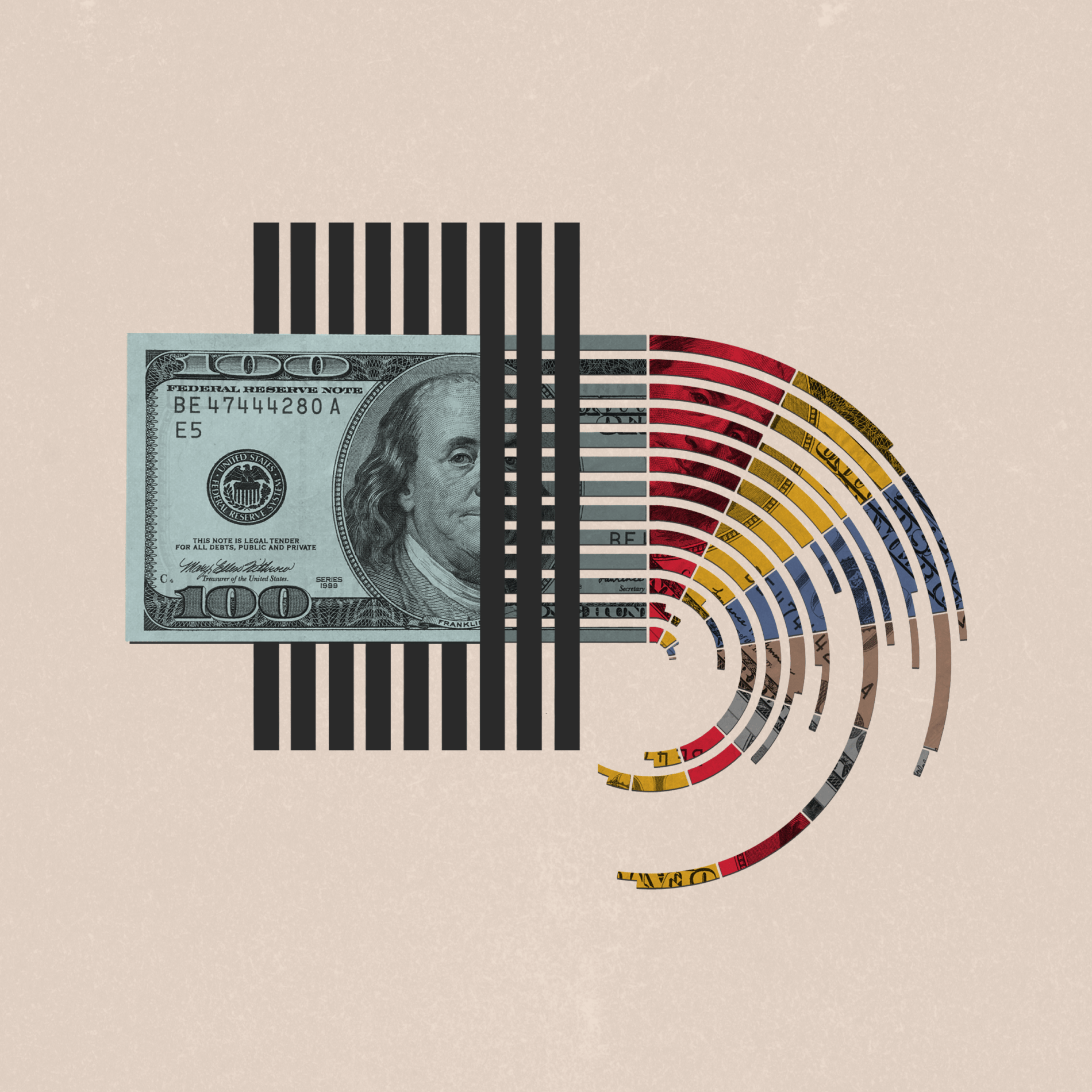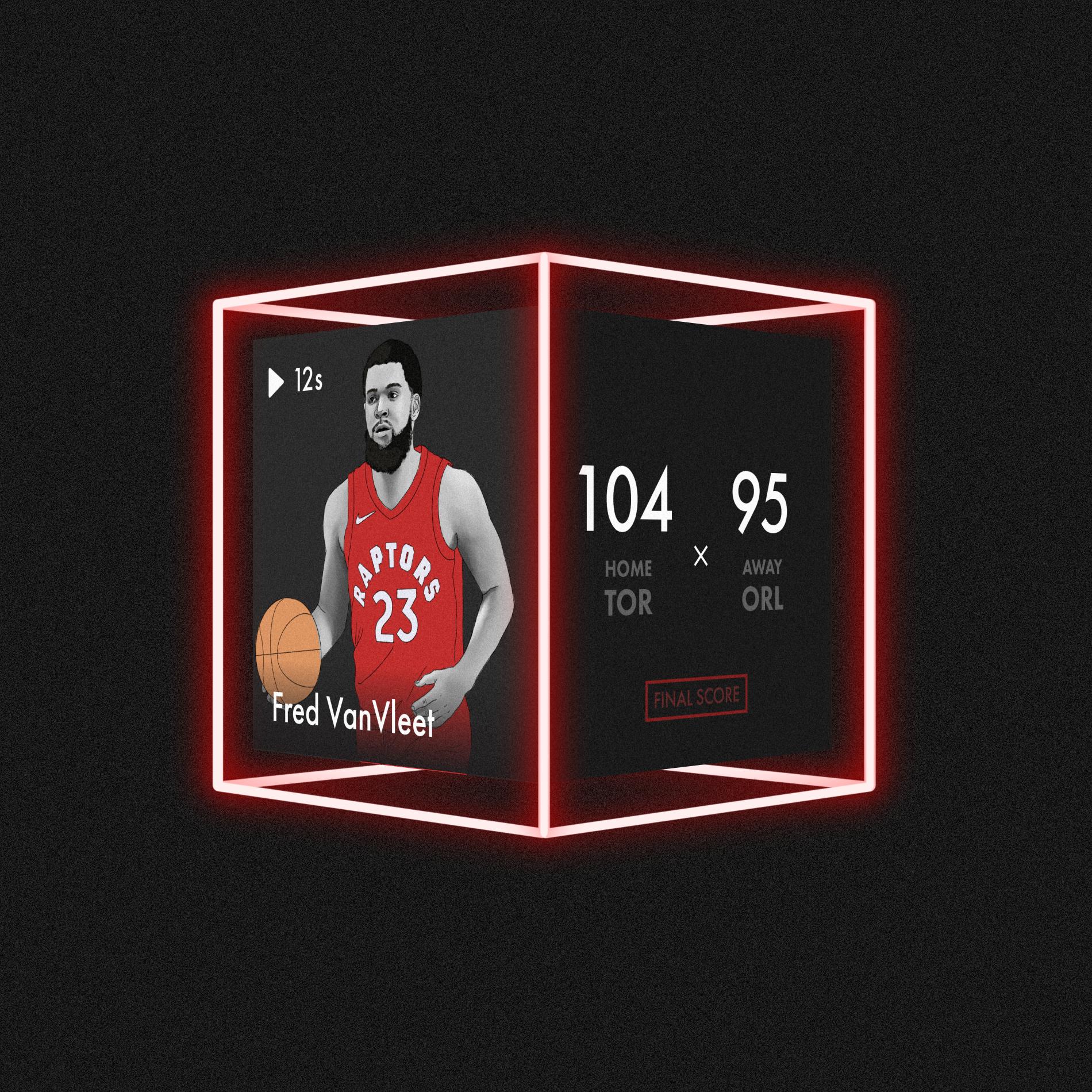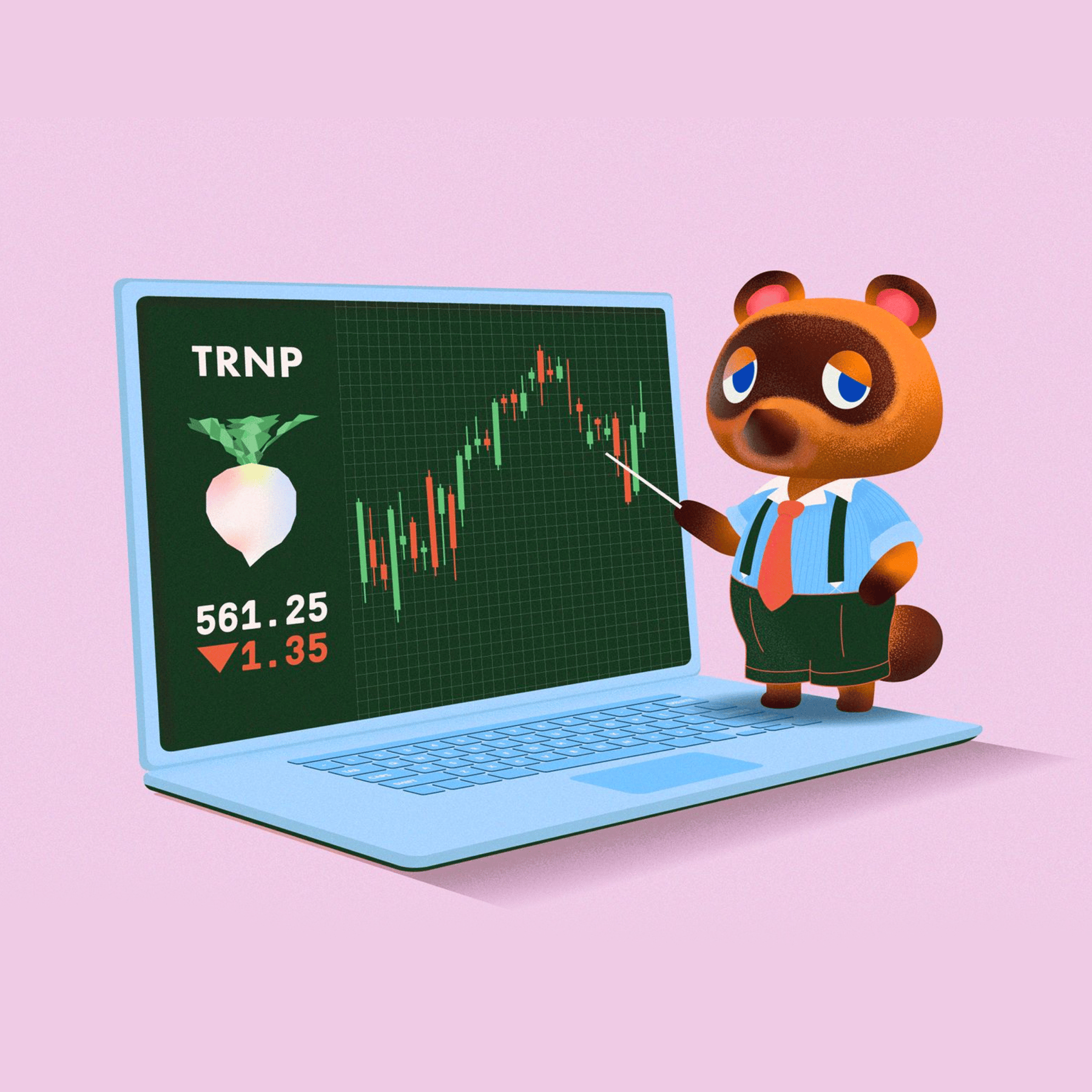
Money & the World
We Fact-Check Theories About Meme Stocks and Online Brokerages
Brokerages stopped trading on stocks like GameStop, issued warnings when people tried to trade, and even had to raise billions to shore up their businesses. There’s a hurricane of misinformation about why all that happened. Here we weigh in on what’s true, what’s false, and what we just don’t know the answer to.
Wealthsimple makes powerful financial tools to help you grow and manage your money. Learn more
Theory: Brokerages and trading platforms purposely stopped people from trading GameStop and other “meme stocks” like AMC.
True. Actually, two different types of entities temporarily halted trading on GameStop (GME). Let’s take them one at a time.
The first one we’ll talk about is stock exchanges, which halted the trading of GME and other meme stocks many times in the past week. Exchange halts happen for a number of reasons, but in this case, it was something called a “limit up/limit down rule.” This is a regulatory restriction on how much a stock price can jump from its existing price. It basically says that if the best bid or offer for a large company’s single stock is more or less than 5% higher or lower than its reference price, trading on that stock is halted for five minutes. (The guardrails are wider for smaller companies, whose stocks are more volatile.) Why halt those trades? It helps people manage extreme volatility and understand the reasons for price movements. These fluctuations are sometimes due to errors, and those errors can cascade into bigger problems for complicated reasons (like algorithmic trading, where computers automatically execute trades after certain price movements). If there are still offers at that price after five minutes, they can go through. Does a stop like this work the same for everyone, whether you’re a Wall Street insider or someone selling a single share on your phone? Yes. When the limit rule goes into effect, no one can trade that stock regardless of where they’re doing it.
Brokerages enacted the second stoppage we’ll talk about. A brokerage is licensed to buy and sell stocks, either for itself or for clients. Wealthsimple Trade, for instance, is a brokerage. During the GameStop phenomenon, some brokerages halted all buying of certain stocks, while others only halted the trading of options and buying on margin.
Theory: Wealthsimple Trade prevented people from trading meme stocks.
False. Wealthsimple did not halt trading on any stock and did not prevent clients from executing any trades.
There’s been some confusion about this because some trades haven’t filled, which tends to happen more when markets are extremely volatile and experience high volume. How does volatility make it harder for trades to be executed? A couple of ways; let’s go over them.
1) If you place a market buy (meaning you just want to buy the stock at its current market price), it’s actually sent to the market as a limit buy with what’s called a 5% collar. That means that if the price goes up more than 5% between the time you place the order and when the order is executed, the trade will remain pending. If the price never gets back to within 5% of what it was when you made your original order, it’s automatically cancelled at the end of the trading day. This isn’t new. Most brokerages have this rule to protect investors from sudden price swings that could mean they’re buying at prices they hadn’t anticipated.
2) A limit order is too far off the stock’s current price (see below).
Theory: The reason some brokers stopped people from trading GME and other meme stocks is that they’re siding with Wall Street against individual traders.
Probably false (though only those brokers who stopped people from trading can know for sure).
One thing to remember is that most brokerages make their money when people trade, not by taking profits from particular stocks’ movements. Keeping clients from trading would be cutting off their revenue.
But it’s true that it’s more complicated than that. Let’s get deeper into it.

Sign up for our weekly non-boring newsletter about money, markets, and more.
By providing your email, you are consenting to receive communications from Wealthsimple Media Inc. Visit our Privacy Policy for more info, or contact us at privacy@wealthsimple.com or 80 Spadina Ave., Toronto, ON.
In order to understand the reasons brokers stopped trading, we’ll have to get under the hood a little bit on what a brokerage is, the other types of companies they work with to make trades, and what the rules are for trading between those companies.
OK, so there are entities called central clearinghouses. The purpose of a clearinghouse is to make sure that the person selling a stock gets the money and the person buying the stock gets the stock. To do that, they have to make sure that brokers have enough money on hand to pay a seller or enough stock on hand to pay a buyer. The central clearinghouse in the United States is called the Depository Trust Clearing Corporation (DTCC). Canada has a similar institution, called the Canadian Depository for Securities Limited (CDS). Without a central clearinghouse, each brokerage would be responsible for settling trades directly with the other parties, which would be a logistical nightmare.
In most cases, trades are settled (i.e., money actually changes hands) two business days after a trade is made. It’s way more efficient to let the trade happen instantly and then settle up later. But this convenience comes with a risk. What if the buyer doesn’t pay the seller? Or the seller fails to deliver the stock? To manage this risk, the central clearinghouse requires a certain amount of collateral (i.e., money held in reserve) in case of default. And if the collateral runs out, the central clearinghouse keeps a kind of emergency stash funded by all the firms that use the clearinghouse to cover the losses.
Here’s the trick, though. How much collateral a brokerage needs to have isn’t always the same. It can go up or down depending on how large their exposure is. If a brokerage is involved in really risky trades, it will need to have more cash on hand. So, what happened, in this case, is that there was a surge in volatility and concentration in positions, and in response, the DTCC required additional collateral from certain brokers. And some of those brokers—mainly newer, less established firms with less cash—didn’t have the money on hand. So they were not allowed to trade until they could find enough collateral. One brokerage, for example, took out large loans and sold equity to meet the collateral requirements.
It’s possible brokerages had other reasons for halting trading—we only know what we know–but we don’t know what they’d be. At the end of the day, we’d all be wise to remember that if there’s any economic incentive for brokerages here, it’s that they want traders to make more trades. That’s the business model. Cutting off trading is extremely bad for business.
Theory: The stoppages in trading affected small investors more than financial-industry insiders.
This is likely true.
Even if there were solid risk-management reasons for halting trading, the outcome was that some individual investors who use relatively new and smaller brokerages didn’t have access to the market while other traders did. Usually, brokerages will refuse your business only when you yourself are a credit risk (which happens to both hedge funds and retail investors alike). But in this case, many retail investors didn’t get access to the market through no fault of their own.
Theory: Wealthsimple put volatility warnings on some meme stocks. They did this to try to stop people from trading and protect their own interests.
False.
It’s true that we put warnings on a few exceptionally volatile stocks. The purpose of that warning is not to bar anyone from trading, though. Look, as a business, we make money when you trade. So it would be unwise for us to keep people from trading. But in the longterm, we think we’ll be a better and more successful enterprise if we also help our clients make the most informed decisions.
Theory: The brokerages halted trading to help other firms they’re in business with. You see, brokerages earn money by getting payments from firms that process their orders—aka ‘payment-for-order-flow.’ And those companies that process orders are owned by the same hedge funds that were going broke because of the rise of GameStop. They were protecting their own.
Probably false, though, again, only the parties involved can know for certain.
Recommended for you

What’s Up With All Those Crypto Laser-Eyes Profile Pics? A Definitive Investigation
Money & the World

The Long-Term Economic Disaster of Cash Bail
Money & the World

Data: Who Really Traded GME? Why? And What Happened to Them?
Money & the World

GME, Doge, Supreme: How Getting Rich Went Full Internet
Money & the World
But yes, this is a theory that’s out there on the internet. To figure out how likely it is that it’s true, let’s start by reviewing the basic ways a brokerage can make money:
1) A brokerage can earn interest on clients’ cash deposits above what they pass along to clients.
2) It can charge commissions for trades.
3) It can earn interest on loans it gives to clients, called “margin.”
4) It can lend out securities to short sellers.
5) It can earn payment from companies known as “market makers” in exchange for directing their business to them (this is called “payment for order flow,” which we mentioned above. (Note: this is only a potential source of revenue for orders on US-listed securities, not Canadian trades.)
6) It can charge for services, like fees for making foreign currency exchanges (this is how Wealthsimple makes money) or giving expert financial advice or advanced trading tools.
Let’s go back to payment for order flow, which is at the centre of this theory. It’s true that market makers can be a source of revenue for brokerages. Here’s how it works. Market makers may earn a tiny profit off these trades. They want lots of trades because their business model relies on volume, and that’s why they’re willing to pay brokerages for orders. They also often provide better prices to traders than they could find on the market.
As to whether there’s a kind of collusion or conflict of interest on the part of these businesses, we’ll do our best to address that in the next question.
Theory: Brokers, market makers, and everyone else involved with stock trading are colluding with the hedge funds.
Probably false.
The funds that were short like GameStop, AMC, and other meme stocks, lost a lot of money. (There were likely also hedge funds that were on the other side and profited.) The incentives for those funds were very different from the incentives for brokerages and market makers. Hedge funds don’t necessarily want a lot of trading—they want the price to move in their favour so they can profit.
The companies that would have wanted prices to stop rising are the hedge funds that were shorting those stocks. We haven’t seen any evidence that these funds influenced brokerages and market makers to act illegally and against their own economic interests to stop trading (and making money).
There’s been speculation that a market maker with a conflict of interest influenced the stoppages. The theory goes that the company that owns this market maker had invested in a hedge fund after it had posted severe losses on GameStop short positions and then influenced brokerages to turn off trading on the stock to reduce losses. We haven’t seen any evidence that this is true, and all of the evidence that we have seen corresponds to what brokerages that stopped trading are saying. They stopped trading because they did not have enough collateral to post with the central clearinghouse, which was adjusting collateral requirements according to its rules. The market maker never stopped processing trades in meme stocks.
Theory: Some brokerages implemented restrictions around limit orders because they purposely wanted to prevent people from trading specific stocks.
It’s true that some brokerages implemented restrictions on limit orders, but it’s false that the purpose of those restrictions was to stop people from trading.
First, a quick refresher on what limit orders are. A limit order is when a trader tells their brokerage either the highest or lowest price at which they’re willing to buy or sell a stock. For example, say that the most you are willing to pay for Apple shares is $130 per share. If at the time you submit your order, Apple is offered at a price lower than $130 per share, your order will be executed. If the price for Apple shares is higher than $130 when you submit your order, it will remain an outstanding order until someone is willing to sell Apple to you at $130 per share. If it doesn’t get to that price, your order will eventually be cancelled.
Normally, limit orders that are way off the stock’s current price—like if a stock is trading for $1 and you put in a sell order for $100—are permitted by executing brokerages (brokerages that interact with exchanges) and posted to the market. Of course, because share prices don’t often move that much, those types of trades usually end up unfulfilled.
But those orders, even if they never get fulfilled, add to the volume that executing brokerages have to process. So when there’s high volume, brokerages may put some restrictions in place and/or stop accepting limit orders that are well outside the current market price. They do this to make sure they can still process all the other orders that are more likely to be executed, which is in the best interest of both the brokerage (which wants to execute as many trades as possible) and its clients.
Executing brokerages put some of these restrictions in place last week when the volume of orders being sent to the market was very, very high.
Theory: I know some brokerages lend out shares, and if I don’t want them to do that (because I think it helps the hedge funds), I can just place a really high-priced limit order on those shares that won’t go through, and everyone wins.
This is false.
In some circumstances, shares that an investor holds in their account are loaned out by the brokerage to third parties, including short sellers. There has been some misinformation shared online that if an investor has an outstanding order on a share, it can’t be loaned out—and fewer loaned out shares means that investors (including hedge funds) who are shorting a stock have to pay more to borrow those shares. So these investors are placing limit orders that are nowhere near the price of the stock—not expecting the order to actually go through but using the order as a way of preventing the brokerage from lending out their shares.
In fact, having an outstanding order does not prevent brokerages who engage in securities lending from loaning out shares.
Wealthsimple's education team is made up of writers and financial experts dedicated to making the world of finance easy to understand and not-at-all boring to read.






